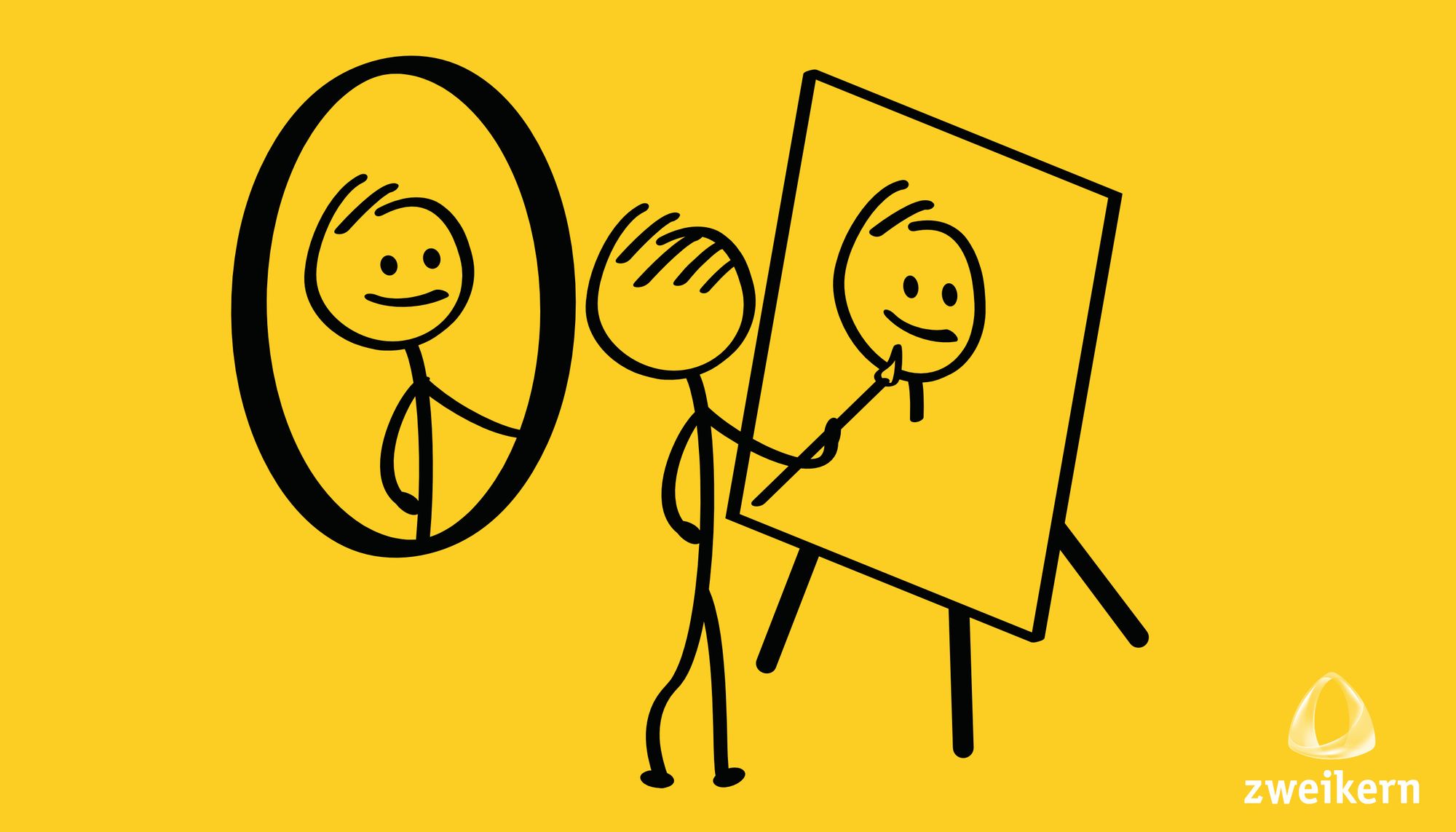
What is self-reflection?
Definition
Self-reflection is the cognitive ability to contemplate oneself. In a corporate context, it involves asking oneself questions about one's leadership behavior, the company's vision, and personal values. "Working on oneself" means adapting to colleagues (regardless of their position in the corporate context) and nurturing relationships with them. Furthermore, through self-reflection, one becomes aware of how they impact other people and how they can learn to become more self-assured and empathetic. It allows individuals to gain clarity about their roles and relationship patterns, making it easier to break them and prevent the solidification of detrimental habits.
Origin
The word "Self-reflection" has its origins in Latin. It derives from the Latin words "se" (self) and "reflexio" (return, bend). The verb "reflect" means "to throw back" or "to bend back." "Self-reflection" thus refers to the ability to rethink and contemplate one's own thoughts, behaviors, and experiences in a way that leads to better self-understanding or looking back on insights about oneself. This capacity to introspect and analyze oneself is an essential component of personal development and learning.
Synonyms
- Introspection
- Self-assessment
- Self-review
- Self-evaluation
Additional Interesting Facts
Self-Reflection and Personal Development
Self-reflection is a key to personal development and growth. It allows individuals to assess and review their own beliefs, values, behaviors, and goals. Through regular self-reflection, people can develop a deeper understanding of their emotions and motivations and become more effective in achieving their goals and overcoming challenges.
Methods of Self-Reflection
There are various methods of self-reflection, such as keeping a diary, meditation, coaching, or supervision. Each method has its own advantages and can help one become aware of their strengths, weaknesses, values, and goals.
Self-Reflection in a Professional Context
In a professional context, self-reflection can contribute to increasing job satisfaction and performance by reconsidering one’s way of working, interactions with colleagues, and professional goals. It can also assist in reducing stress and preventing burnout.
Impact on Interpersonal Relationships
Through self-reflection, one can learn how to communicate and interact better with others, leading to improved interpersonal relationships. It enables one to give and receive constructive feedback and can lead to enhanced understanding and more constructive relationships.
Consciousness and Self-Awareness
Self-reflection is a way to develop heightened consciousness and self-awareness. It allows one to learn more about their own thoughts, feelings, values, and beliefs and can lead to improved self-perception and self-acceptance.
Conclusion
Self-reflection stands as an indispensable and invaluable skill, rendering profound insights into one’s own thought patterns, feelings, values, and beliefs. It serves not merely as a tool for personal development but also as a cornerstone to leading a more fulfilled, conscious, and balanced life.
By regularly engaging in self-reflection, individuals can achieve heightened awareness and a more profound understanding of themselves, leading to improved self-perception and self-acceptance. This enhanced awareness allows individuals to define their goals more clearly, reconsider their actions and responses, and develop more effective strategies for addressing challenges.
Within a professional context, self-reflection can significantly contribute to enhancing job satisfaction and performance by allowing individuals to reconsider their approach to work, interactions with colleagues, and professional objectives. It aids in mitigating stress and averting burnout by fostering a deeper comprehension of one’s needs and limits.
The capability for self-reflection can have profound repercussions on interpersonal relationships as well. It facilitates improved communication and interaction with others and can nurture more constructive and understanding relationships. It empowers individuals to both give and receive constructive feedback, which in turn, can encourage mutual growth and understanding.
Furthermore, self-reflection is a conduit to heightened consciousness and self-awareness, enabling an enriched learning about one’s thoughts, feelings, values, and beliefs. Through varied methods of self-reflection like journaling, meditation, coaching, or supervision, individuals can uncover their strengths, weaknesses, values, and objectives, each providing unique advantages and avenues for awareness and growth.
Lastly, self-reflection is not a static but a dynamic, ongoing process contributing to continual betterment and personal development. It’s an essential mechanism that enables individuals to lead more fulfilling lives, maintain healthier relationships, and achieve their personal and professional goals more effectively. By cultivating a habit of reflective practice, individuals can enhance their well-being, self-awareness, interpersonal relationships, and overall personal and professional development, fostering a life that is not just lived, but lived with purpose and understanding.